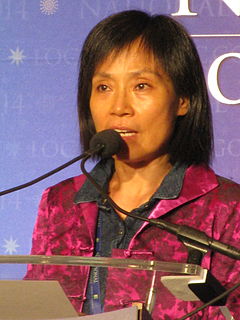A Quote by Evan Osnos
I think there's a tendency, and it's an understandable tendency, to imagine that China makes decisions out of a grand strategy. The reality is that I think China today is operating, most of all, based on its domestic needs.
Related Quotes
The reality of today, different as it is from the reality of my society one hundred years ago, is and can be important if we have the energy and the inclination to challenge it, to go out and engage with its peculiarities, with the things that we do not understand. The real danger is the tendency to retreat into the obvious, the tendency to be frightened by the richness of the world and to clutch what we always have understood.
In 2006, I became the fist American to be allowed to go visit their astronaut center in China in Beijing. I think that it makes sense for the U.S. to work with China in the future and I hope to see, if the political atmosphere between the United States and China allow for us to do more cooperation together, especially in the area of human space flight. I think in the same way that it's help improve the relations between the U.S. and Russia; it would help to improve the relations between the U.S. and China.
Well, I think we are seeing some shifts in manufacturing. China, when you go in and you talk to the big manufacturers there, the biggest problems in mainland China are recruiting and retention. There isn't an endless supply of cheap labor anymore in China. And it's now true that the labor rates in Mexico are lower than in China.
I think that some of today's focus on freedom of information and trans rights have a tendency to focus on the actions of individuals and how they should be regulated by governments. However, I think it's important to remember that it is the institutions themselves - schools, tax collection services, banks, human resources decisions, health departments, police departments, prosecutors, courts, and prisons - where the most devastating and systemic problems occur today. The scale of these problems is simply unimaginable.
The most successful hyperpowers are the ones where there was actual intermixing. Tang dynasty China was China's golden age, and contrary to what I was told when I was growing up, Tang China was founded by a man who by today's standards was no more than half Chinese. It was a mixed-blood dynasty that pulled in 'barbarians' from the steppe.

































